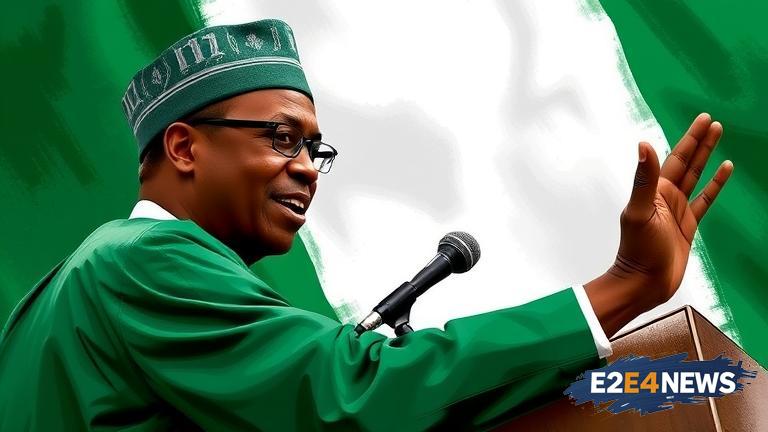The Nigerian political landscape is abuzz with speculation that former President Goodluck Jonathan may be contesting in the upcoming presidential election. According to sources, Jonathan is being pushed by some stakeholders to challenge the incumbent president, Bola Tinubu. This development has sparked intense debate and discussion among Nigerians, with some hailing the move as a welcome development, while others have expressed skepticism. The news has also sent shockwaves through the political establishment, with many wondering what prompted Jonathan’s potential decision to re-enter the political fray. It is worth noting that Jonathan has not publicly confirmed his intention to run, but sources close to him have hinted that he is under pressure to do so. The former president has been out of the political spotlight since his defeat in the 2015 presidential election, but his recent activities have suggested that he may be gearing up for a comeback. Jonathan’s potential candidacy has been met with enthusiasm by some Nigerians, who see him as a viable alternative to the current administration. However, others have questioned his decision, citing his past record and the need for new leadership. The Peoples Democratic Party (PDP), which Jonathan belongs to, has not officially commented on the matter, but it is likely that the party will be watching the situation closely. As the election draws near, the stakes are high, and the battle for the presidency is expected to be fierce. Tinubu, who is seeking re-election, will likely face stiff competition from other candidates, including Jonathan, if he decides to run. The election is expected to be a referendum on the current administration’s performance, and Nigerians will be watching closely to see how the candidates respond to the country’s pressing challenges. The economy, security, and corruption are likely to be key issues in the campaign, and candidates will need to articulate clear visions for addressing these challenges. Jonathan’s experience as a former president could be an asset in the election, but he will also face scrutiny over his past record. The former president has been accused of mishandling the economy and failing to address corruption during his tenure. Despite these challenges, Jonathan remains a popular figure in Nigeria, and his candidacy could potentially galvanize support from certain sections of the electorate. However, it is unclear whether he can muster enough support to win the election. The PDP will need to carefully consider its strategy and ensure that it presents a united front if it hopes to challenge the ruling party. As the situation unfolds, Nigerians will be watching with bated breath to see how the election plays out. The country’s future hangs in the balance, and the outcome of the election will have far-reaching consequences for the nation. In the coming weeks and months, the campaign is expected to heat up, with candidates engaging in intense rhetoric and politicking. The international community will also be watching the election closely, given Nigeria’s strategic importance in the region. The country’s stability and prosperity are crucial to regional security, and the election will have significant implications for the entire West African region. As the drama unfolds, one thing is clear: the upcoming Nigerian presidential election will be a pivotal moment in the country’s history, and the outcome will shape the nation’s future for years to come.





